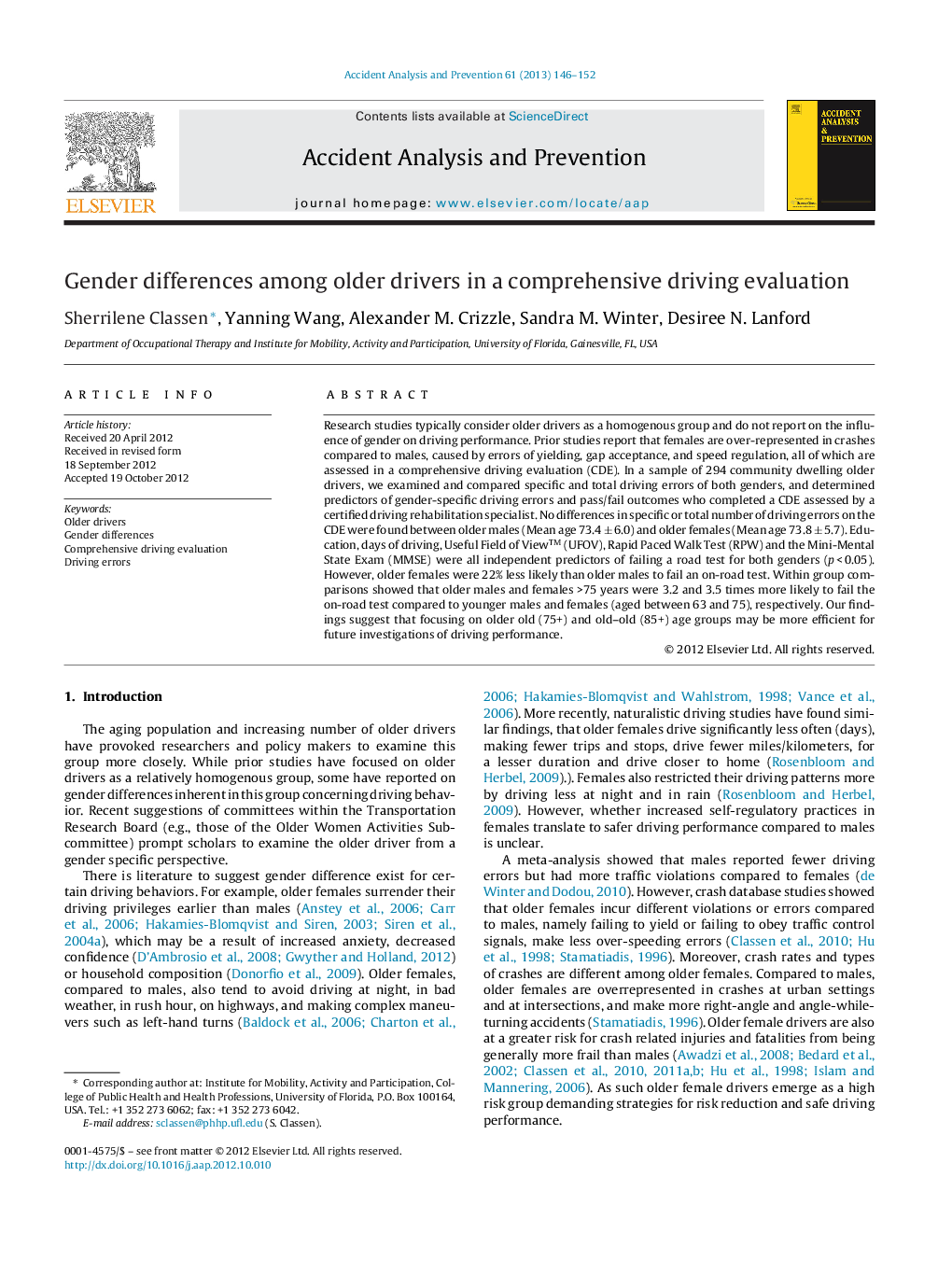| کد مقاله | کد نشریه | سال انتشار | مقاله انگلیسی | نسخه تمام متن |
|---|---|---|---|---|
| 572468 | 1452936 | 2013 | 7 صفحه PDF | دانلود رایگان |

Research studies typically consider older drivers as a homogenous group and do not report on the influence of gender on driving performance. Prior studies report that females are over-represented in crashes compared to males, caused by errors of yielding, gap acceptance, and speed regulation, all of which are assessed in a comprehensive driving evaluation (CDE). In a sample of 294 community dwelling older drivers, we examined and compared specific and total driving errors of both genders, and determined predictors of gender-specific driving errors and pass/fail outcomes who completed a CDE assessed by a certified driving rehabilitation specialist. No differences in specific or total number of driving errors on the CDE were found between older males (Mean age 73.4 ± 6.0) and older females (Mean age 73.8 ± 5.7). Education, days of driving, Useful Field of View™ (UFOV), Rapid Paced Walk Test (RPW) and the Mini-Mental State Exam (MMSE) were all independent predictors of failing a road test for both genders (p < 0.05). However, older females were 22% less likely than older males to fail an on-road test. Within group comparisons showed that older males and females >75 years were 3.2 and 3.5 times more likely to fail the on-road test compared to younger males and females (aged between 63 and 75), respectively. Our findings suggest that focusing on older old (75+) and old–old (85+) age groups may be more efficient for future investigations of driving performance.
► We found no differences in the type or number of driving errors between genders although women were 22% more likely to pass an on-road test.
► Older women have more avoidance behaviors compared to older men.
► Age differences exist within both genders, suggesting that older drivers 75+ (both men and women) have an increased risk of failing an on-road test.
► We suggest examining drivers 75+ (opposed to 65+) as these may be the drivers that present the greatest risk for driving impairment.
Journal: Accident Analysis & Prevention - Volume 61, December 2013, Pages 146–152